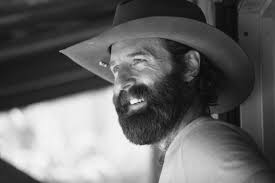By Sean Dietrich
Recently, I went to the gas station to get a newspaper, coffee and lottery ticket. My bloodhound, Thelma Lou—poster child for moderate hyperactivity disorder—usually goes with me.
The way our morning routine usually works is simple: I buy a newspaper, maybe some powdered donuts; she steals my donuts and eats my newspaper.
But on this morning, when I walked into the gas station, something was wrong. Before I even got to the donuts, I could tell the air was tense.
The scene was this:
The cashier behind the counter was frazzled. She obviously did not know how to use the computerized cash register.
A customer at the counter was aggravated with her. There were five customers in line. They were all displaying universal gestures of annoyance.
Clearing throats. Folding arms. Tapping feet. The woman in front of me glanced at her watch. One man sighed hard enough to knock over a circus tent.
“Not-niceness.” That’s what we’re dealing with here. And it’s running rampant in today’s world.
The customers were growing not-nicer by the minute. Finally, a man slammed his change on the counter. Another man mumbled a cuss word before storming out.
One woman shook her head and said, “Learn how to do your JOB, sweetie.”
When I got to the cashier, she was too overwhelmed to say anything. Who can blame her? It’s not every day five customers behave like walking-talking jack mules.
She was a woman who looked older than she was. Her hair was blonde. She had tattoos on her arms and on her hands.
“People can certainly be mean,” I remarked.
“Yeah,” she said. Then, she sort of broke down. She placed her head in her hands.
“I just CAN’T figure out this computer,” she said. “I ain’t stupid, I know how to do stuff, but this thing’s acting weird.”
So, I made conversation.
This is what my mother taught me to do during uncomfortable situations. My mother believed in talking so much that others didn’t have to.
And I learned a little about this cashier. She’s from Ohio. She moved to Florida to be close to her sister after her father died from brain cancer.
It was hell on earth, being her father’s caregiver. It was even worse after he died. She had no family left in her hometown.
So, she crammed her children into a car and left for Florida. She had nothing but car problems along the way. She broke down twice and burnt up her savings getting into this state.
She applied for jobs and finally landed at this one. She also has other jobs. She works on a painting crew. She cleans pools.
Her oldest child has a mild form of autism. She and her boys live in a house with her sister’s family. Eight people live under one roof, altogether. Eight.
There is a lot going on underneath that face of hers. And even though she doesn’t say it outright, I know she still misses her father. She feels like a burden on her sister.
I also know she is running low on sleep, and I know that—thanks to the miracles of technology—today she feels like a complete moron.
I left my cash on the counter and exited with powdered donuts, coffee and a newspaper. But I’ve been thinking about her ever since.
I suppose I wish I could rewind that morning and start it over for her. I wish I could paint her day bright gold, and tell her everything is going to be okay—even when it doesn’t seem like it.
But I can’t do that. All I can do is write a few hundred words and hope she sees them. And if, by chance, one of those annoyed customers reads this, I’d like to say one more thing:
I hope you have a perfect life, friend. I hope you have everything you need to be happy. Big things, small things, family and friends.
Because one day, you’re going to have a bad day. One day, you’re going to feel like you might not make it.
You’ll feel lost in your own life; you’ll feel sad; and overwhelmed; and unsure; and incompetent; and worried; and weak; and tired; and afraid; and overlooked and foolish. When that day comes, I sincerely hope that someone is nice to you.
Wherever you are. Whoever you are. However important you might be…
Be nice.
Sean Dietrich is a columnist, and novelist, known for his commentary on life in the American South. His work has appeared in Southern Living, the Tallahassee Democrat, Southern Magazine, Yellowhammer News, the Bitter Southerner, the Mobile Press Register and he has authored seven books.

